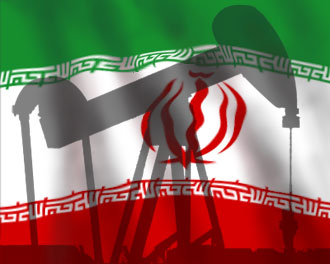Azerbaijan, Baku, June 30 / Trend A.Badalova/
A growth in Iraq and Saudi Arabia's oil output may fill the lack of Iranian barrels on the world market, Energy Security Analysis (ESAI) analysts believe.
"The actual start of the EU embargo on Iran will intensify the search for alternatives, but Saudi Arabia and Iraq will fill any shortage faced by the Med refiners," analysts said in their Global Crude Oil Outlook.
Analysts predict that as a result of the sanctions Iran's oil production will fall to 2.5 million barrels per day (bpd) in the second quarter of 2012.
The EU joined the United States in imposing a total ban on imports of Iranian oil to pressure Tehran over its nuclear programme that the West suspects may be aimed at developing nuclear weapons. Tehran says its research is for peaceful purposes.
An EU embargo aimed at derailing Iran's nuclear enrichment program will come into effect July 1 after talks with the Persian Gulf state failed to reach a breakthrough.
According to the ESAI analysts, at the end of 2011 and through the first half of 2012, significant increases in output by Iraq, Libya and Saudi Arabia have expanded the crude supply options for Med refiners.
Saudi Arabia boosted production from 8.7 million barrels per day (bpd) in the first half of 2011 to 9.4 million bpd in the second half of 2011 and then to more than 9.6 million bpd in the first half of 2012, according to ESAI estimates. Libyan production staged an impressive recovery, climbing back to more than 1.4 million bpd.
"The rapid growth in Iraqi output has largely compensated for the shortfall in Iranian output so far this year. Iraqi output, which fluctuated near 2.68 million bpd throughout 2011, has climbed to nearly 3.0 million bpd recently, and Iraq's impact on global supply will only grow through the rest of the year," ESAI report says.
Though ESAI expects lower Saudi output in the months ahead, it believes that Saudi Arabia will meet any request for additional barrels made by Med refiners.
According to ESAI analysts, in Libya there is only limited upside for short-term production, and, if refining capacity restarts, that country's crude exports could actually decrease.
Iraq, on the other hand, is likely to raise production over the course of the year and add to crude supply in the Med, ESAI analysts believe.
Last year, Iranian crude exports were running at about 2 million-2.2 million bpd with total production, including domestic consumption at 3.5 million-3.6 million bpd.
There is no timely official data on Iranian crude export levels and there are often differences of opinion among those that monitor its supplies on the rate of shipments.






